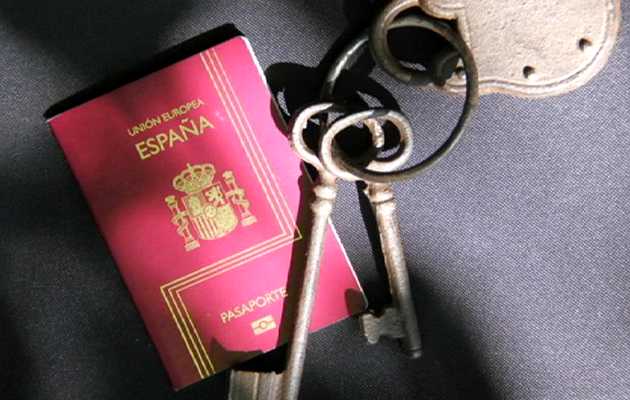Descendants of those expelled 500 years ago will not have to give up their own nationality.
 Old sephardic key of spanish house and spanish passport / Euro News
Old sephardic key of spanish house and spanish passport / Euro News
Spain’s Congress on Thursday finally passed the much-anticipated Sephardic ancestry law, which will open the doors for thousands of people across the globe to obtain Spanish nationality if they can prove they are descendants of the Jewish community expelled from Spain in 1492.
Those who are interested in acquiring Spanish citizenship will not have to give up their own nationality or be required to move to Spain, according to the new law.
About 3.5 million people could benefit from the new law, say Sephardic groups
Before the bill was passed, Justice Minister Rafael Catalá and Foreign Minister José Manuel García-Margallo spoke in the chamber about this historic decision that “repairs the injustice committed 500 years ago.”
The ancestry law has stirred up much interest in countries such as Argentina, Brazil, Turkey, Israel and Venezuela, which have large Sephardic Jewish communities.
Sephardic organizations around the world have estimated that about 3.5 million people could benefit from the new law.
While the law was approved by all political parties, the only criticism from the opposition was that the measure did not include other groups, such as residents of Western Sahara, the now disputed former colony that Spain abandoned in 1976.
The law establishes the procedure that must be followed in order for Spanish nationality to be granted. Applicants need to produce either a Jewish community certificate or an ancestor’s marriage or birth certificate to support their Sephardic ancestry. They also have to demonstrate that they have some links to Spain through family, knowledge of Spanish, or contributions made to Spanish organizations.
Those interested have a three-year period from the time the law goes into effect to apply for citizenship, and will have to take a mandatory integration test covering Spanish language, culture and customs, which is set by the Cervantes Institute, the government agency that promotes Spain and its culture around the world.
Applicants from Latin American nations are exempt from the language test and will be able to submit their paperwork online.

Las opiniones vertidas por nuestros colaboradores se realizan a nivel personal, pudiendo coincidir o no con la postura de la dirección de Protestante Digital.
Si quieres comentar o